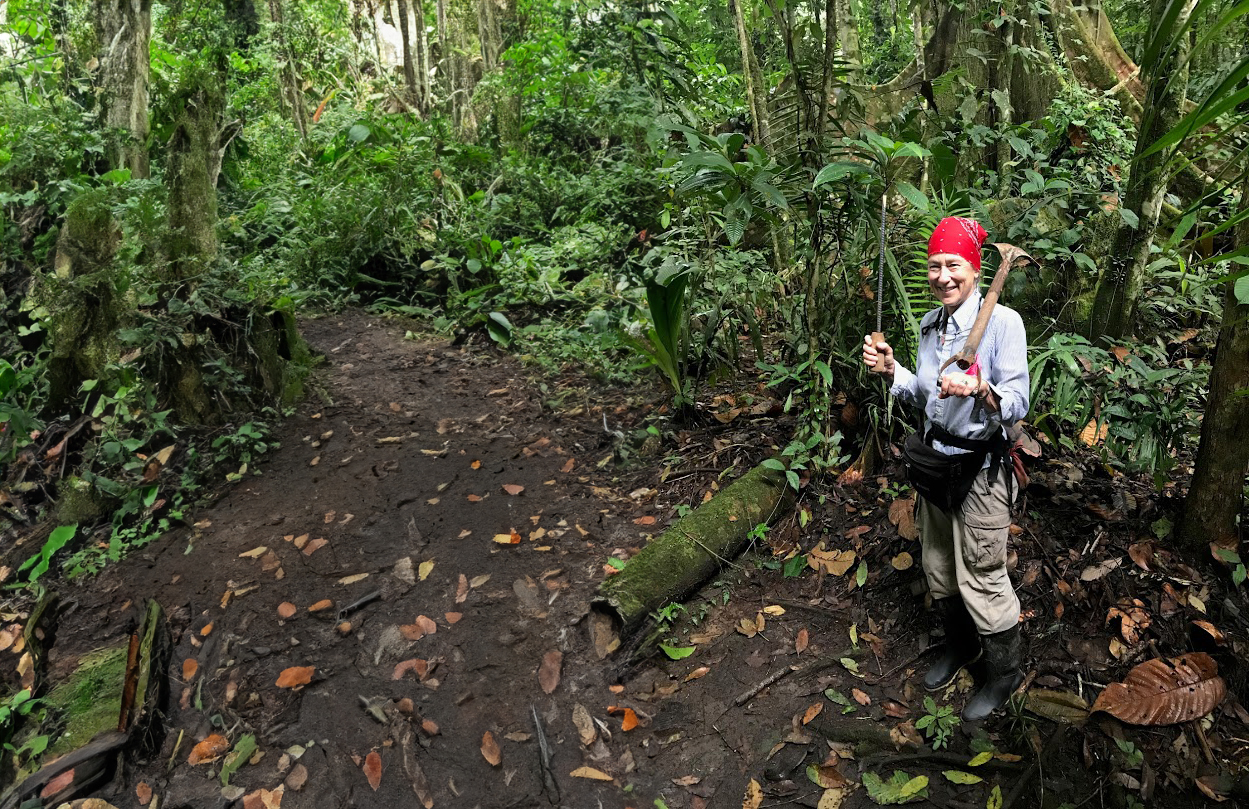
2 minute read
Lissy Coley: Rainforest to Recognition
“I FIRST STEPPED FOOT IN A TROPICAL RAINFOREST IN 1975 AND HAVE BEEN BACK EVERY YEAR DOING RESEARCH ON HOW PLANTS DEFEND THEMSELVES AGAINST GETTING EATEN BY INSECTS,” says Phyllis “Lissy” Coley, distinguished professor emerita of biology at the U. She is newly elected member of the National Academy of Sciences (NAS).
Coley’s signature work on understanding the complexity of ecosystems is due to her focus on why tropical forests are so spectacularly diverse. “How can 650 tree species–more than in all of North America–live together in a single hectare of tropical forest?” she asks.
Another question related to the first includes what drives speciation. “We have shown that the arms race with insect herbivores leads to extraordinarily rapid evolution of a battery of plant defenses,” she continues, “particularly chemical toxins, such that a given species of herbivore has evolved counter adaptations that allow it to feed on only plant species with similar defenses.”
It turns out that plant species with different defenses do not share herbivores and therefore can co-exist, promoting high local diversity. The concept that the high biodiversity of tropical forests is due to these antagonistic interactions is now widely accepted by her colleagues in the forest ecology sector and now acknowledged by the NAS.
“I am happy that the young scientists I have mentored are continuing to explore the many remaining questions in evolutionary ecology,” she says. With her late partner Tom Kursar, Coley set up their project with the majority of the work being done by local scientists. It has led to promising patents, research experiences for hundreds of students, and the creation of more jobs than the country of Panama's ubiquitous and potentially destructive industry of logging.
Furthermore, the project has established the island of Coiba as a protected World Heritage Site and created a new voice of Panamanian scientists helping to shape government policy and appreciation of their natural treasures.
“When it comes to understanding the complexity of ecosystems and the risks they face in today’s world,” says current Director of the School of Biological Sciences Fred Adler “Distinguished Professor Lissy Coley is the expert I turn to get to the heart of the question.” <











